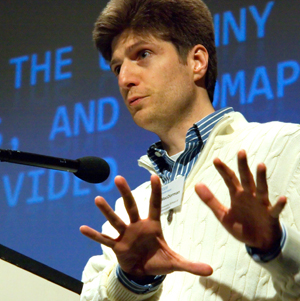Professor Karl Fredric MacDorman
Karl Fredric MacDorman, Ph.D. is Associate Professor in the Human-Computer Interaction program of the School of Informatics, Indiana University. He is a widely published scholar and also is an Adjunct Professor with the Purdue School of Engineering and Technology.
Karl has a research and education background that is international in scope. He received his Bachelor of Arts degree in computer science from University of California, Berkeley in 1988. His studies then took him to Cambridge University in the United Kingdom where he received his Ph.D. in machine learning and robotics in 1996.
Most recently Karl was an associate professor at Osaka University, Japan (2003–2005). Previously, he was assistant professor in the Department of Systems and Human Science at the same institution (1997–2000), and a supervisor (1991–1997) and research fellow (1997–1998) at Cambridge University.
Karl has also worked as a software engineer at Sun Microsystems and as chief technology officer for two venture companies. He has published more than 40 papers in Human Computer Interaction, Robotics, Machine Learning, and Cognitive Science.
Karl coedited Symbol Grounding. His papers include Baby steps: A design proposal for more believable motion in an infant-sized android, Automatic emotion prediction of song excerpts: Index construction, algorithm design, and empirical comparison, Gender differences in the impact of presentational factors in human character animation on decisions of ethical consequence, Inverse kinematics learning for robotic arms with fewer degrees of freedom by modular neural network systems, Extending the medium hypothesis: The Dennett-Mangan controversy and beyond, and Dynamics of co-transcriptional pre-mRNA folding influences the induction of dystrophin exon skipping by antisense oligonucleotides. Read the full list of his publications!
His research interests include android science, machine learning, social robotics, sensor motor representation, symbol grounding and symbol emergence, computational neuroscience, and computer security.
